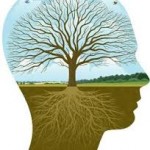Recent Coaching articles
These are articles and resources I have come across whilst reading around Coaching, and preparing for running Coaching Supervision sessions:
Spring 2018
 An overview of Team Coaching article about approaches to Team Coaching and Team Coaching tools Coaches can use
An overview of Team Coaching article about approaches to Team Coaching and Team Coaching tools Coaches can use
INSIGHTS TEAM EFFECTIVENESS REVIEW using the 4 foundation areas of the Insights personality profiling; team focus, team “flow”, team climate and team process
Resilience Resources and Exercises 2018 a wealth of information and exercises around the area of Resilience
Winter 2017
The “winter collection” is:
 VALUES-AND-PURPOSE-TOOL This is a Coaching tool I created from merging (like 2 ends of a car!) your core values with the idea of creating your own personal coat of arms. It came out of some coaching work with an individual who really wanted to connect their personal values with the work they were doing.
VALUES-AND-PURPOSE-TOOL This is a Coaching tool I created from merging (like 2 ends of a car!) your core values with the idea of creating your own personal coat of arms. It came out of some coaching work with an individual who really wanted to connect their personal values with the work they were doing.
Neuroplasticity; changing our belief about change article. I came across this doing some research on neuroscience. This article is about the power of neuroscience: as the saying goes, “neurons that fire together, wire together.” The more we practice something, the more we strengthen the pathway, and the easier the skill becomes
THE TALENTED COACHEE: interesting article that looks at the role that Coachees (clients) play in the coaching work, and especially their “enabling” and “defensive” skills
Life+Canvas; similar to the values and purpose tool, but a bit more comprehensive, I thought this was interesting in how it borrows from strategic business thinking to apply to us as individuals to chart who and what we are across our whole lives; if you want a bit of background reading to the tool, take a look at this link: http://songyakesler.com/blog/
Autumn 2016
 contracting-in-coaching-article: a short article providing an overview of the initial contracting phase of Coaching. It is covers some of the points to work through with a client around contracting
contracting-in-coaching-article: a short article providing an overview of the initial contracting phase of Coaching. It is covers some of the points to work through with a client around contracting- the-comfort-stretch-panic-coaching-tool Many people may be familiar with this model, but always a good one to refresh, especially the circumstances you yourself go into the stretch zone, or indeed the panic zone in your professional or personal life
- coaching-progress-review This is a reflective exercise that allows clients to think about their next session, the positives and challenges and how the work is going for them overall
- stakeholders-coaching-exercise: A psychological exercise that helps us reflect on the border between Coaching and counselling, this exercise looks at the power of key figures in our lives
Summer 2016
 An article providing an overview of the benefits and practicalities of mindfulness; What does mindfulness have to do with you and work Article
An article providing an overview of the benefits and practicalities of mindfulness; What does mindfulness have to do with you and work Article- An article on ontological coaching with some interesting points about the narratives our clients create in coaching with language, emotion and body; Ontological Coaching article
- The CBT 5 PART MODEL, which encourages individuals to unpack step by step their thoughts, emotions, behaviours and physical reactions
- The resilience tool is a Coaching tool I put together some time ago after a conversation with another Coach about how we go about looking after ourselves and recover from adversity and setback: Resilience – self assessment exercise
Spring 2016
 A deceptively simple Purpose_Practice Sheet Tool which links values-options-making room for what you love
A deceptively simple Purpose_Practice Sheet Tool which links values-options-making room for what you love
A background career tool to start thinking about what motivates you at work called Career Drivers Assessment
A Brene Brown article showing how to work with emotion and change your narrative: Brené Brown on How to Reckon with Emotion and Change Your Narrative
An article on Gestalt theory in Coaching, an interesting approach to try and adjust between the “figure and ground” in a coaching context: Gestalt figure – ground
Autumn 2015
 The Challenging Coaching article looks at the Coaches ability to challenge as well as support clients
The Challenging Coaching article looks at the Coaches ability to challenge as well as support clients
Eight Coaching Myths and misconceptions is an article written by David Clutterbuck about some of the myths he feels there are in the world of coaching and mentoring
Covey’s 4 quadrants Exercise is taken from one of Stephen Covey’s 7 habits of highly effective people, focussing on how we spend out time
Summer 2015
 Coaching The Brain Article “Brain based approach to Coaching” by David Rock with lots of technical details about how the brain works: there are some good foundation principles of how neuroscience can help us understand clients and the attention, reflection, insight and action “ARIA” model
Coaching The Brain Article “Brain based approach to Coaching” by David Rock with lots of technical details about how the brain works: there are some good foundation principles of how neuroscience can help us understand clients and the attention, reflection, insight and action “ARIA” model
What coaches can learn from neuroscience research has 7 helpful principles that are useful for Coaches to be aware of
5 Opportunities to Use Neuroscience to Guide You and Enhance your Understanding of those You Coach is a good all round, practical article on application of neuroscience principles to Coaching
The Healthy Mind Platter is an interesting twist on the wheel of life idea to optimise the brain, based on a model by Dan Siegel
Spring 2015
Enemies of Coaching article about the pitfalls we can fall into when Coaching
Background articles to passive aggressive behaviour that we can face working in teams, or managing teams
Strengths Finding Tool questions to support clients identifying their core strengths and weaknesses
The CBC Approach to Stress Management Coaching an Association for Coaching article using “CBT” principles in managing stress
Autumn 2014
 Invitation to Innovation Coaching article about sharing passion for innovation, and bringing it into the coaching arena
Invitation to Innovation Coaching article about sharing passion for innovation, and bringing it into the coaching arena
Understanding your values AOC article looking at core values in work, home and relationships
The_PRACTICE_model_of_coaching_towards_a_solution-focused_approach-2 a more in depth coaching model than “GROW” with working sheet
Summer 2014
 A really interesting business coaches boundary article about how business coaches experience the boundary between coaching and therapy/counselling by Alison Maxwell.
A really interesting business coaches boundary article about how business coaches experience the boundary between coaching and therapy/counselling by Alison Maxwell.
Along similar lines, The-mental-health-boundary article looking at the mental health boundary in relationship to coaching and other activities by Andrew Buckley.
Spring 2014
 Stephen Covey’s Circle of Concern and Circle of Influence
Stephen Covey’s Circle of Concern and Circle of Influence- Coaching at Work Dance-of-trust about establishing trust with new and existing clients
- Association for Coaching article on AC Tips for work life balance
- Promoting Healthy Conflict article from the Colour Works
Winter 2013
 Working with narrative in Coaching: We are the stories we tell Coaching article
Working with narrative in Coaching: We are the stories we tell Coaching article- The science of the art of coaching, looking at theories of brain based coaching: The Science of the Art of Coaching
- Overcoming worry may be the key to mental health: Overcoming worry
- The principles of Force Field Analysis, and use in Coaching: Force Field Analysis
- De Bono’s 6 hats thinking in a Coaching context as a working tool: DE BONOs 6 hats What next exercise
- The “Unstuck” practice sheet looking at core values, purpose and making room for what you love: Purpose_Practice Sheet Tool
Autumn 2013
 The first article is from the Forbes magazine on 10 Things You Should Know About Career Coaching as there are a lot of people coming to coaching looking at future career direction, this provides some useful pointers from a specialist Career Coach (I have been through and taken out any obvious Americanisms like resume instead of CV!)
The first article is from the Forbes magazine on 10 Things You Should Know About Career Coaching as there are a lot of people coming to coaching looking at future career direction, this provides some useful pointers from a specialist Career Coach (I have been through and taken out any obvious Americanisms like resume instead of CV!)- The The Achieve Coaching Model article is a progression on from the “GROW” model, and have put this in as it’s always good to go back to some of the basic principles around Coaching and different models used
- The Cognitive Distortions Fact sheet is taken from cognitive behavioural theory, and is a sheet on some of the typical cognitive distortions we apply to our experiences; the idea is that clients look through, and discuss some of these with their Coach, along with adapting strategies
- A colleague of mine wrote an article a few years ago (still as topical and thoughtful) on the whole area of Talking straight and being authentic; there are also a couple of helpful appendices on models for approaching difficult conversations
